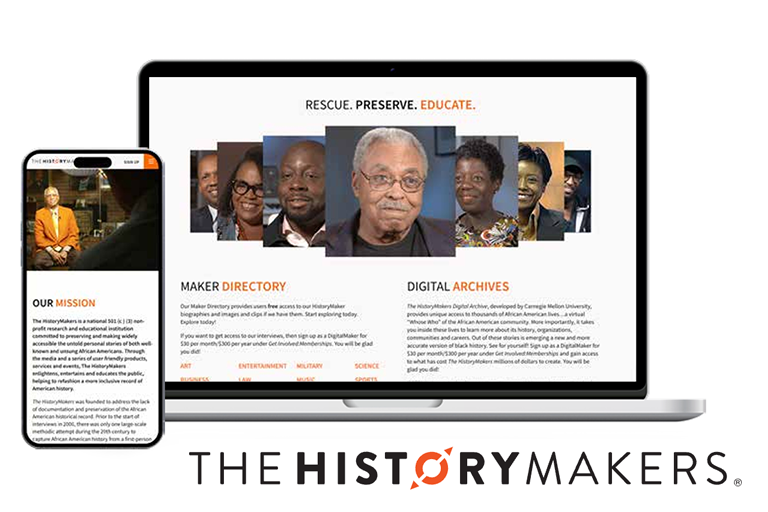
Written by Barb Berggoetz, Guest Journalist
Personal papers and recordings from both well-known and unsung African Americans are being digitally preserved at IU, under an agreement between IU Libraries, University Information Technology Services (UITS) and The HistoryMakers, a national non-profit organization that has grown to be the nation’s largest African American video oral history archive, and is dedicated to documenting African American life, history and culture.
“We’re doing this as part of IU’s mission,” said Jon Dunn, assistant dean for Library Technologies for IU Libraries. “The great thing about this partnership is we are able to leverage the investments IU already has made in library and information technology infrastructure to help support our mission of preserving knowledge more broadly.”
The recent agreement means IU’s Scholarly Data Archive, operated by UITS, is serving as a 3rd copy backup digital storage facility for the digitized personal papers, photographs, videos, and sound recordings of African American people whose lives The HistoryMakers is documenting. Some digitized data already have been transferred and others will follow, as The HistoryMakers digitizes more collections.
“In the digital world, when you have works of art and collections that are deemed important, you want a couple copies of them,” said Matt Link, associate vice president for UITS Research Technologies. “In the eyes of The HistoryMakers, those data are priceless.” He said providing digital storage space is not a lot of work and IU’s digital infrastructure, including research storage, is substantial. “It falls under the category of the right thing to do,” he said.
The HistoryMakers, headquartered in Chicago, wants the data stored at IU for long-term safekeeping but provides public access through its own website. The research and educational institution’s overall goal is to enlighten, entertain and educate the public through the media and user-friendly products, services, and events, says the website.
The HistoryMakers Digital Archive of about 3,600 videotaped oral interviews has been digitized. IU Libraries has a subscription, so faculty, students, staff, as well as on-site library visitors using IU workstations, can access the full set of interviews revealing untold stories of African Americans living during the 19th, 20th and 21st centuries. With an unlimited simultaneous usage license, the digital archive can also be included in course curriculum and used in class assignments and discussions.
Among people highlighted are civil rights activist Julian Bond; poet and entertainer Oscar Brown Jr; former Washington D.C. Mayor Marion Barry; baseball player Ernie Banks; rhythm and blues singer Tyrone Banks; U.S. Congressman John Lewis; and race car driver Willy T. Ribbs. Those interviews, said The HistoryMakers’ website, “represent the only massive attempt to record the black experience since the WPA Slave Narratives of the 1930s.”
The Library of Congress is the permanent repository for the oral histories. The agreement, Dunn said, developed after The HistoryMakers’ President and Founder Julieanna Richardson contacted IU upon learning about IU’s Media Digitization and Preservation Initiative, an effort to digitize and preserve all rare and unique audio and moving image materials across IU’s collections.
HistoryMakers’ staff discovered when interviewing African Americans that many hadn’t considered what to do with their personal papers and other records, Dunn was told. After finding other institutions couldn’t take in and digitize these records quickly, The HistoryMakers started digitizing them and sought IU’s advice on how to digitize and store the data, Dunn said. He added IU Libraries and UITS later offered to partner with The HistoryMakers and provide digital preservation storage of these digitized personal papers in the Scholarly Data Archive, which serves as the long-term storage and preservation environment for IU data. Many of IU faculty’s research publications and data are stored there.
Link said The HistoryMakers’ data are being stored in The Scholarly Data Archive which makes one copy of the data in Bloomington and another copy in Indianapolis, so they are geographically separated to provide redundancy and resiliency. “We are stewards of those data, but HistoryMakers is ultimately the owner,” he said.
